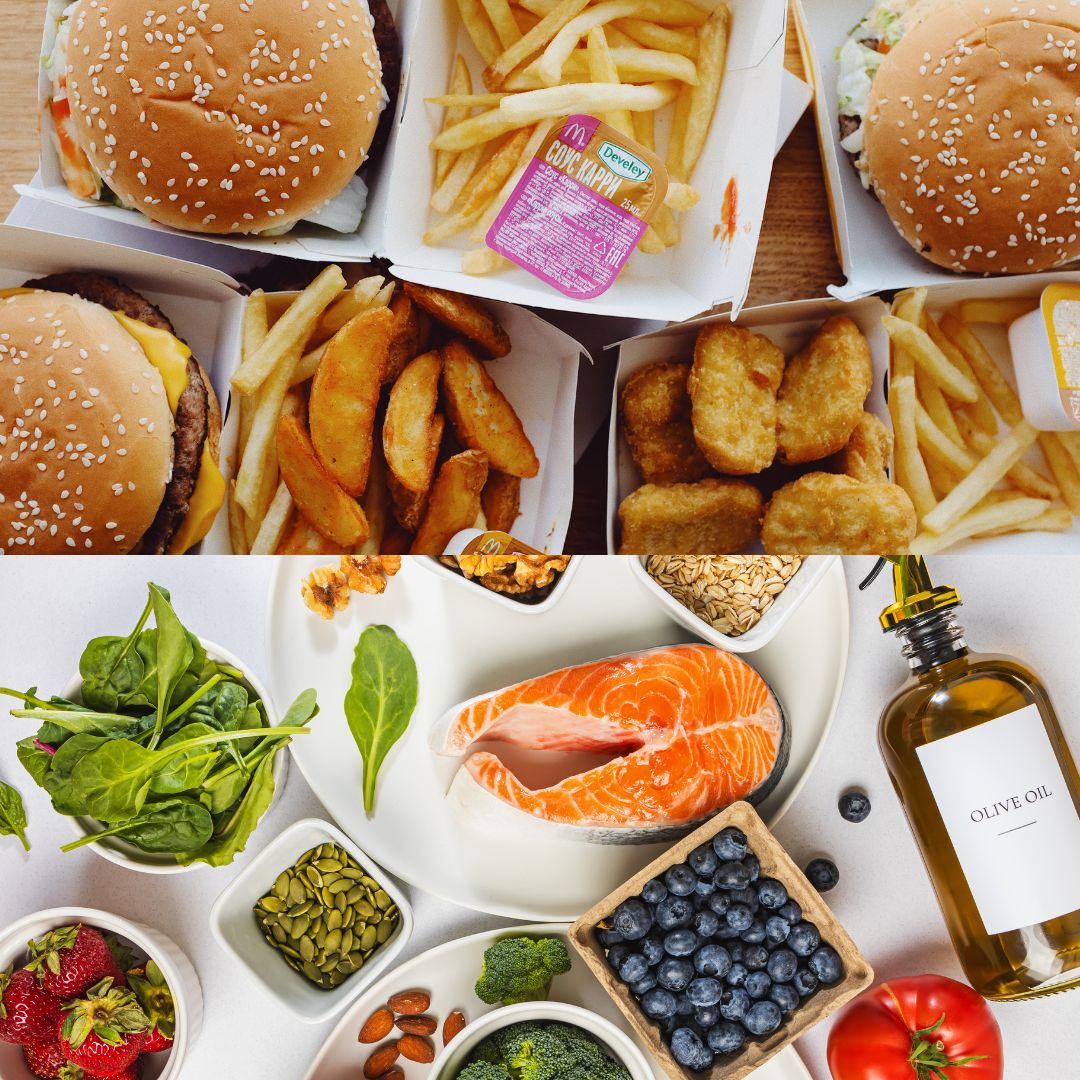
Ultra-Processed Foods: The Hidden Driver of Weight Gain and Low Energy
Have you ever felt that certain foods actually make you hungrier, less energised, or more prone to snacking? You are not imagining it! The modern food environment is dominated by ultra-processed foods - or UPFs - and they’re quietly influencing how we eat, how full we feel, and how our metabolism functions.
Recent public attention, including Dr Chris van Tulleken’s book Ultra-Processed People and BBC documentary work, has helped reveal what some scientists have known for years: diets high in UPFs are strongly linked to weight gain, poor blood sugar control, and rising rates of metabolic disease.
What Counts as Ultra-Processed?
The term ultra-processed food comes from the NOVA classification, a system developed by Brazilian researchers to categorise foods based on how much they’ve been changed from their original form.
UPFs typically include products made mostly or entirely from industrial ingredients, such as refined starches, oils, sweeteners, flavour enhancers and emulsifiers, with little or no recognisable whole food remaining.
Examples include:
They’re designed to be convenient, tasty and affordable, but they’re also engineered to keep us coming back for more!
How UPFs Affect Blood Sugar and Cravings
UPFs are often rapidly digested and low in fibre, which causes quick spikes in blood sugar and insulin. These sharp rises are usually followed by a sudden drop, leaving you tired, hungry and craving something sweet or starchy again a few hours later.
In a landmark study at the U.S. National Institutes of Health, participants who ate an ultra-processed diet for two weeks consumed around 500 extra calories per day compared to those on a minimally processed diet, despite being offered the same foods in terms of calories, salt and macronutrients. They didn’t mean to overeat; the texture, speed of eating, and reduced satiety simply made it happen.
As van Tulleken points out, many UPFs are “food-like products” that activate the brain’s reward centres more powerfully than traditional foods. This makes moderation difficult, especially when you’re busy, tired or stressed.
The Link Between UPFs and Weight Gain
While no single food causes weight gain on its own, diets dominated by ultra-processed foods are strongly associated with higher body weight, insulin resistance, and metabolic syndrome. The combination of high energy density, poor nutrient quality, and altered appetite signalling creates a perfect storm for metabolic stress.
Long-term studies have linked high UPF intake with an increased risk of type 2 diabetes, heart disease, depression and even premature death. These effects aren’t just about calories, they relate to how UPFs disrupt hormones such as insulin, ghrelin and leptin, which control appetite and fullness.
Why UPFs Are Hard to Avoid
Around 60% of the average UK diet now comes from UPFs, making avoidance almost impossible. They’re absolutely everywhere - in workplaces, cafés, and supermarkets - marketed as “healthy” or “low-fat”, but often loaded with artificial sweeteners, additives, emulsifiers, or refined grains.
For many clients I see, this leads to confusion and frustration: “I’m eating low-fat yoghurt and wholegrain cereal, so why do I still feel tired and hungry all the time?” The answer often lies in food quality and processing level, not the calorie content.
Simple, Sustainable Food Swaps
Completely cutting out UPFs isn’t realistic for most people and it doesn’t have to be. The aim is to shift the balance towards more whole, minimally processed foods that keep blood sugar stable and support energy and mood.
A few easy swaps:
These small changes add up quickly, improving satiety and naturally reducing cravings, without the need for restriction or “detoxing”.
If you’re curious about how to reduce UPFs in your diet, but worried about the cost, check out my blog, Eat Well, Spend Less for more info.
For practical meal inspiration, visit the recipe section of the blog page for balanced, easy-to-prepare dishes that use real, nutrient-dense ingredients.
Next Steps
Reducing ultra-processed foods isn’t about perfection, it’s about awareness. Understanding how they affect your metabolism and mood allows you to make better choices, even in small steps.
If you’d like ongoing support, recipe ideas and tips for sustainable eating, join my free, private Facebook group where I share regular insights to help you build lasting habits for longterm health and wellbeing.
Disclaimer: This blog is for general educational purposes only and is not a substitute for medical advice. Please consult your GP or healthcare provider before making changes to your diet, supplements or medication.
![]()
Please get in touch and find out more - I offer a free 30-minute exploratory call.